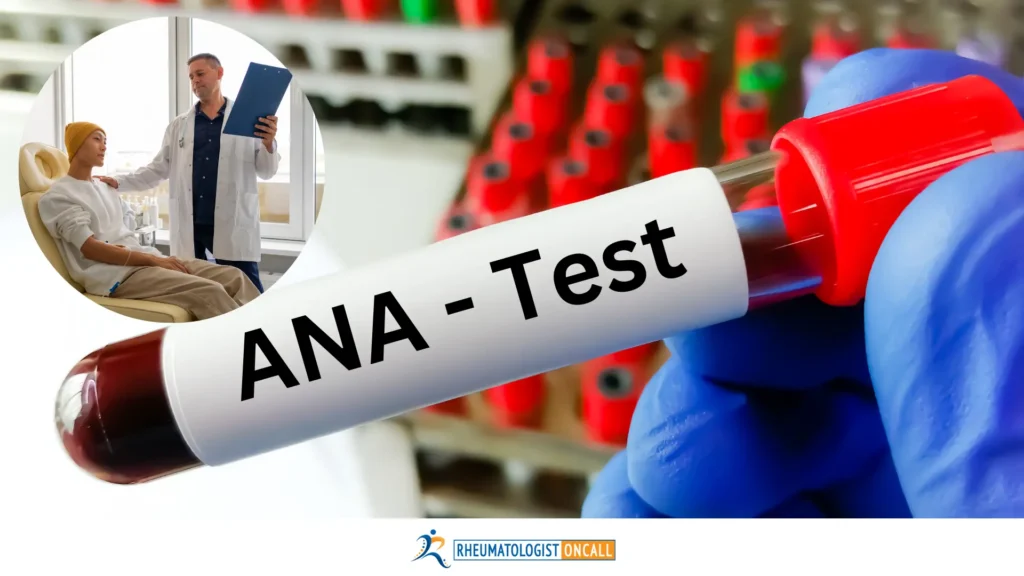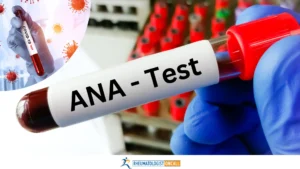SHARE
Have you or a loved one received a positive ANA (Antinuclear Antibody) test result in the context of cancer diagnosis or treatment? Understanding the relationship between ANAs, cancer, and various cancer treatments can be complex.
This article will explore the intricate connections between positive ANA tests and different types of cancer, as well as how cancer treatments like radiation therapy, immunotherapy, and chemotherapy can influence ANA levels.
What is a Positive ANA Test?
Antinuclear antibodies (ANAs) are autoantibodies that target the nucleus, or the core, of cells. While they’re primarily associated with autoimmune diseases, like Lupus or Sjogren’s Disease, recent research has shown a significant relationship between certain cancers and positive ANA results.
Key points about ANA tests:
- They detect antibodies targeting the cell nucleus
- Primarily used to help diagnose autoimmune diseases
- The ANA test may be positive due to cancer or cancer treatments
ANA Test and Different Types of Cancer
Recent studies have shown that ANAs are frequently found in cancer patients, with prevalence ranging from 15% to 65%, depending on the type of cancer. Here are some cancer types associated with positive ANA results:
- Lymphomas
- Hodgkin’s Lymphoma
- Non-Hodgkin’s Lymphoma
- Solid Organ Cancers
- Lung Cancer (associated with anti-CENP-B antibodies)
- Breast Cancer (also associated with anti-CENP-B antibodies)
- Ovarian Cancer
- Colorectal Cancer
- Hepatocellular Carcinoma (liver cancer)
- Leukemias
- Chronic Lymphocytic Leukemia (CLL)
- Acute Myeloid Leukemia (AML)
- Multiple Myeloma
It’s important to note that the presence of ANAs in cancer patients can be due to various factors, including paraneoplastic syndromes, cancer therapies, and the cancer itself.
Cancer Treatments and Their Impact on ANA Levels
Cancer treatments can significantly influence ANA levels in patients. Let’s explore how different treatment modalities affect ANA production:
Radiation Therapy
Radiation therapy can lead to positive ANA results due to:
- Tissue damage and inflammation
- Release of nuclear material from damaged cells
- Stimulation of the immune system
Patients undergoing radiation therapy may show temporary increases in ANA levels, which typically normalize after treatment completion.
Immunotherapy
The relationship between immunotherapy and ANAs is complex and an area of active research:
- Predictive Potential: Researchers are exploring whether pre-existing ANAs could predict response to immunotherapy.
- Induced ANAs: Immunotherapy can sometimes induce the production of ANAs as part of its mechanism of action.
- Autoimmune Side Effects: One of the most significant class-dependent side effects of immunotherapy is autoimmune toxicity, which can manifest with positive ANA results.
Various biomarkers, such as PDL1 expression in tumor cells and tumor mutational burden (TMB), are currently more established in predicting immunotherapy response. However, the potential role of ANAs in this context is an exciting area of ongoing research.
Chemotherapy
Chemotherapy can affect ANA levels in several ways:
- Direct damage to cell nuclei, releasing nuclear material
- Alteration of the immune system function
- Induction of autoimmune-like responses
Some chemotherapy drugs are known to induce lupus-like syndromes, which can result in positive ANA tests.
ANAs as Potential Biomarkers in Cancer
Emerging research suggests that ANAs could serve as potential biomarkers in cancer. For example, studies have shown that anti-NuMA (Nuclear Mitotic Apparatus) antibodies may be associated with breast and prostate cancers, while anti-actin antibodies have been linked to various cancer types.
Challenges in Interpreting ANA Results in Cancer Patients
Interpreting ANA results in cancer patients can be challenging due to several factors:
- Multiple Causes: ANAs can be present due to cancer, cancer treatments, or unrelated autoimmune conditions.
- Variability: ANA levels and patterns can vary greatly between individuals and cancer types.
- Temporal Changes: ANA levels may fluctuate during the course of cancer progression and treatment.
- Non-specificity: The presence of ANAs doesn’t necessarily indicate cancer or predict its development.
When to Seek Expert Care
If you’re a patient that has a positive ANA, that id not always indicative of cancer, but it is best to get up to date with all your cancer screenings. If you’are a cancer patient with a positive ANA test, or you’re undergoing cancer treatment and have questions about ANA levels, it’s crucial to seek expert care. While ANAs can provide valuable information, they’re just one piece of the complex puzzle in cancer car.
Consider reaching out to Rheumatologist OnCall for a comprehensive evaluation.
At Rheumatologist OnCall, we offer:
- Expert interpretation of ANA test results in the context of cancer and cancer treatments
- Collaboration with your oncology team for integrated care
- Convenient telemedicine appointments from the comfort of your home
- Personalized guidance on managing autoimmune symptoms during cancer treatment
Schedule your telemedicine or in-person appointment now at 650-525-4404 or [email protected].
Frequently Asked Questions (FAQs)
Q: Does a positive ANA test mean I have cancer?
A: No, a positive ANA test alone doesn’t indicate cancer. It can be due to various factors, including autoimmune diseases and certain medications.
Q: Can cancer treatments cause a false positive ANA test?
A: Cancer treatments can indeed lead to positive ANA results, which are not necessarily false positives but rather a reflection of the body’s response to treatment.
Q: Should cancer patients be regularly tested for ANAs?
A: The need for regular ANA testing in cancer patients depends on individual circumstances. Discuss with your oncologist and rheumatologist whether monitoring ANAs would be beneficial in your case.
Q: Can ANAs predict the effectiveness of immunotherapy?
A: While research is ongoing, other biomarkers, like PDL1 expression and tumor mutational burden, are more established in predicting immunotherapy response.
Q: If I have cancer and a positive ANA test, do I need to see a rheumatologist?
A: It may be beneficial to consult a rheumatologist, especially if you’re experiencing symptoms suggestive of an autoimmune condition. Your oncologist can guide you on whether a rheumatology referral is necessary.














